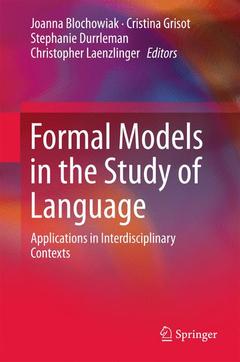Joanna Blochowiak graduated in French Linguistics and also obtained a Master degree in the Philosophy of Language from the University of Geneva. In her PhD dissertation she provided a semantic and pragmatic analysis of ‘why’ questions and of answers with the connective ‘because’. Now she is working as a Postdoc on a project on logical words and her research currently focuses on logical and temporal connectives, negation and causality from formal semantics, pragmatics and experimental perspectives. In the near future, she will be working on conditionals and generics.
Cristina Grisot is working in corpus-based contrastive linguistics and experimental pragmatics. She carried out her doctoral research on the expression of temporal reference in English and Romance languages (French, Italian and Romanian) and she aims at extending this research to aspect-prominent and tenseless languages. She is currently working on offline and online experimentalinvestigations of the cognitive processing of verbal tenses, temporal connectives, temporal adverbials, grammatical aspect, subjectivity and negation, as well as their rich inter-relations. She is now teaching and carrying post-doctoral research at University of Geneva and the Centre of Cognitive Science in Neuchâtel, Switzerland. She is the author of the monograph entitled ’Temporal Reference: New Empirical Perspectives’ (due to be published in 2018 by Springer).
Stephanie Durrleman is Senior Researcher at the Psycholinguistics Department of the University of Geneva. Her work spans a variety of topics including language acquisition, creolistics, syntactic cartography, syntactic locality, the grammar-cognition interface, as well as the phenotype of language disorders. These studies often explore linguistic theories with empirical investigations, and strive to yield concrete applications (fine-tuning language policies, developing therapeutic interventions




